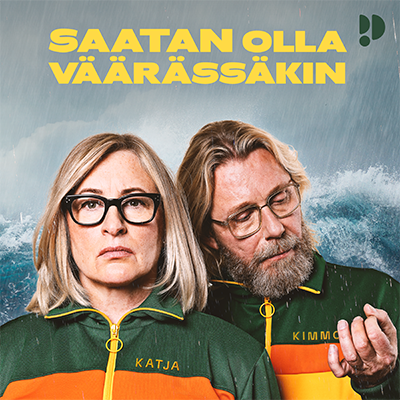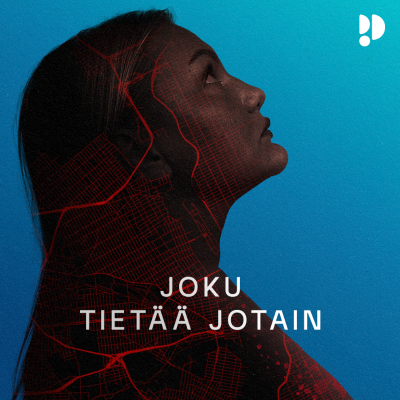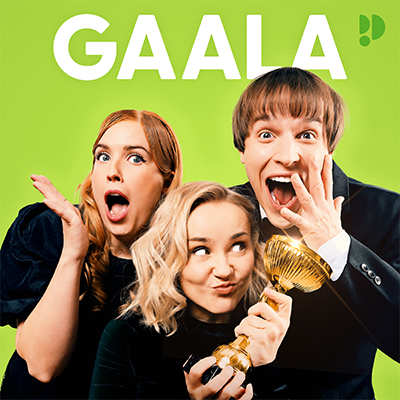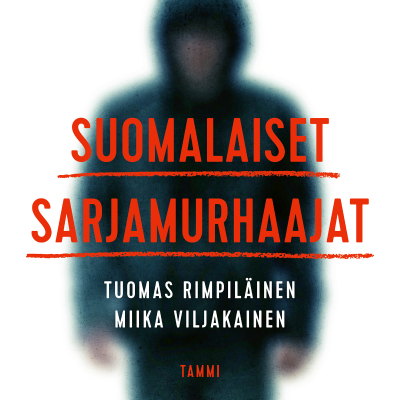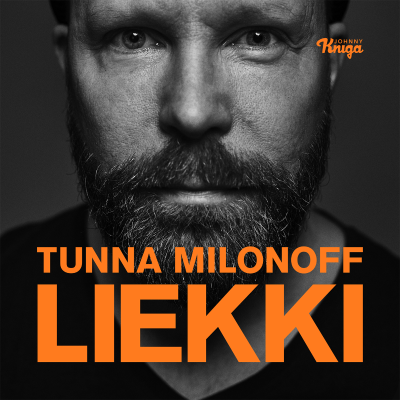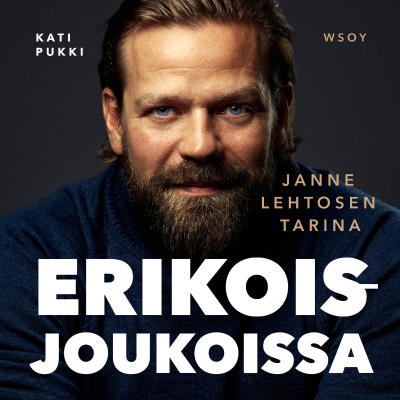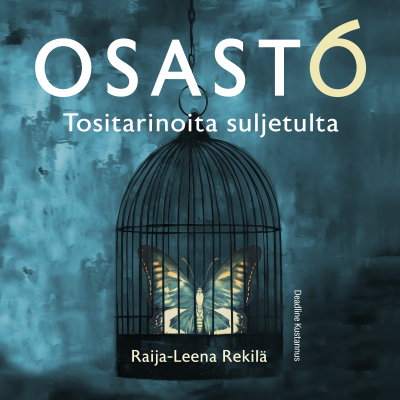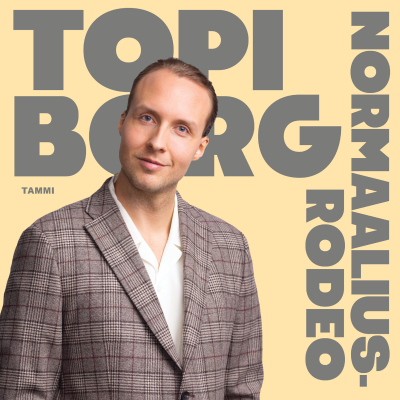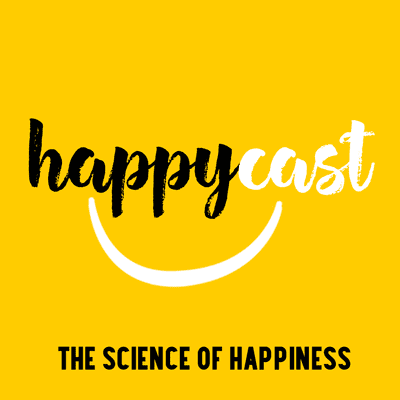
Happycast: The Science of Happiness
Podcast by Trina Kushnerik
I share science based ideas that will make you happier, more productive, and more successful.
90 vrk ilmainen kokeilu
Kokeilun jälkeen 7,99 € / kuukausi.Peru milloin tahansa.
Kaikki jaksot
62 jaksotWhat do I need to actually balance? Why is balance so important? How can we achieve more balance? Listen and find out. A Happier Year is now available on AHappierYear.com [https://ahappieryear.com/product/a-happier-year/]! Use the code “happycastlistener” at checkout for 10% off. [01:00] A metaphor for balance [02:23] Social relationships [02:53] Mirror neurons [03:53] Bowling et al., “What makes your life good?” [06:13] Creating space for social relationships [07:31] Meaning and passion [13:20] Overwork [15:41] Disconnecting from work [17:43] Passions [18:50] Creating space References: * Schnell, T. (2011). Individual differences in meaning-making: Considering the variety of sources of meaning, their density and diversity. Personality and Individual Differences, 51(5), 667-673. https://doi.org/10.1016/j.paid.2011.06.006 [https://doi.org/10.1016/j.paid.2011.06.006] * Uddin, L. Q., Iacoboni, M., Lange, C., & Keenan, J. P. (2007). The self and social cognition: The role of cortical midline structures and mirror neurons. Trends in Cognitive Sciences, 11(4), 153-157. https://doi.org/10.1016/j.tics.2007.01.001 [https://doi.org/10.1016/j.tics.2007.01.001] * Kuroda, S., & Yamamoto, I. (2019). Why Do People Overwork at the Risk of Impairing Mental. Journal of Happiness Studies, 20(5), 1519–1538. https://doi.org/10.1007/s10902-018-0008-x [https://doi.org/10.1007/s10902-018-0008-x] * SONNENTAG, S., & FRITZ, C. (2015). Recovery from job stress: The stressor-detachment model as an integrative framework. Journal of Organizational Behavior, 36(S1), S72-S103. https://doi.org/10.1002/job.1924 [https://doi.org/10.1002/job.1924] * Bridekirk, J., Turcotte, J., & Oddson, B. (2016). Harmonious passions support cognitive resources. Motivation and Emotion, 40(4), 646–654. https://doi.org/10.1007/s11031-016-9561-y
A Happier Year [https://ahappieryear.com/] is now available — an illustrated calendar with 366 science-based actions. Use the code "happycastlistener" for 10% off at checkout on http://ahappieryear.com [https://ahappieryear.com/] Today we are going to talk about three different papers assessing: healthy selfishness, optimism, and acceptance. These three papers provide the basis for three actions in A Happier Year. Let's dive into these papers and get a sneak peek of what's in A Happier Year. [00:00] Intro [02:36] Healthy Selfishness [06:25] Looking forward to tomorrow [09:25] Is anything bugging you right now? References: * Kaufman, S. B., & Jauk, E. (2020). Healthy Selfishness and Pathological Altruism: Measuring Two Paradoxical Forms of Selfishness. Frontiers in psychology, 11, 1006. https://doi.org/10.3389/fpsyg.2020.01006 * Littman-Ovadia, H., & Nir, D. (2013;2014;). Looking forward to tomorrow: The buffering effect of a daily optimism intervention. The Journal of Positive Psychology, 9(2), 122-136. doi:10.1080/17439760.2013.853202 * Ford, B. Q., Lam, P., John, O. P., & Mauss, I. B. (2018). The psychological health benefits of accepting negative emotions and thoughts: Laboratory, diary, and longitudinal evidence. Journal of Personality and Social Psychology, 115(6), 1075–1092. https://doi.org/10.1037/pspp0000157 [https://doi.org/10.1037/pspp0000157]
A Happier Year [https://ahappieryear.com/] is now available — an illustrated calendar with 366 science-based actions. Use the code "happycastlistener" for 10% off at checkout on http://ahappieryear.com [https://ahappieryear.com/] Today we are learning about active leisure! Why do we feel so “blah” after watching Netflix and what can we do instead? What psychological needs are we missing out on? [00:30] Something exciting! [02:30] Active leisure vs passive leisure [04:35] The benefits of active leisure [06:25] How does active leisure benefit us (vs passive leisure) [11:10] An example of active leisure: Rock climbing [13:05] Finding active leisure that suits you [14:06] What are you actually tired of? [15:54] A Happier Year is on Kickstarter! bit.ly/ahappieryear [http://bit.ly/ahappieryear] References: * Hu, X., Barber, L. K., & Santuzzi, A. M. (2020). Does active leisure improve worker well-being? an experimental daily diary approach. Journal of Happiness Studies, doi:10.1007/s10902-020-00305-w * Kuykendall, L., Lei, X., Zhu, Z., & Hu, X. (2020). Leisure choices and employee Well‐Being: Comparing need fulfillment and Well‐Being during TV and other leisure activities. Applied Psychology : Health and Well-being, 12(2), 532-558. doi:10.1111/aphw.12196
A Happier Year [https://ahappieryear.com/] is now available — an illustrated calendar with 366 science-based actions. Use the code "happycastlistener" for 10% off at checkout on http://ahappieryear.com [https://ahappieryear.com/] What is joy? We dig into how we define joy and talk about a strategy to add more joy to our lives. [00:00] Intro [1:10] Exciting Happycast news! [02:28] What is joy? [05:25] Joy as an emotion [08:32] Joy as more than an emotion [11:25] Appreciative joy [13:55] Joy journal [15:08] Tears of joy [20:05] Outro Join the Facebook group to get a sneak peak of A Happier Year and give me some feedback! https://www.facebook.com/groups/957308811397774 [https://www.facebook.com/groups/957308811397774] References * Casioppo, D. (2019). The cultivation of joy: practices from the Buddhist tradition, positive psychology, and yogic philosophy. The Journal of Positive Psychology, 1–7. doi:10.1080/17439760.2019.1685577 * Emmons, R. A. (2020). Joy: An introduction to this special issue. The Journal of Positive Psychology, 15(1), 1–4. https://doi.org/10.1080/17439760.2019.1685580 [https://psycnet.apa.org/doi/10.1080/17439760.2019.1685580] * Zeng, X., Sun, Y., Deng, Y., & Oei, T. P. S. (2019). Appreciative joy rooted in Chinese culture: Its relationship with strengths in values in action. The Journal of Positive Psychology, 1–10. * Zeng, X., Wang, R., Oei, T. P. S., & Leung, F. Y. K. (2018). Heart of Joy: a Randomized Controlled Trail Evaluating the Effect of an Appreciative Joy Meditation Training on Subjective Well-Being and Attitudes. Mindfulness. doi:10.1007/s12671-018-0992-2 * Matthew Kuan Johnson (2020) Joy: a review of the literature and suggestions for future directions, The Journal of Positive Psychology, 15:1, 5-24, DOI: 10.1080/17439760.2019.1685581 [https://doi.org/10.1080/17439760.2019.1685581] * Oriana R. Aragón & John A. Bargh (2017): “So Happy I Could Shout!” and “So Happy I Could Cry!” Dimorphous expressions represent and communicate motivational aspects of positive emotions, Cognition and Emotion, DOI: 10.1080/02699931.2017.1301388 * Matthew Kuan Johnson (2020) Joy: a review of the literature and suggestions for future directions, The Journal of Positive Psychology, 15:1, 5-24, DOI: 10.1080/17439760.2019.1685581 [https://doi.org/10.1080/17439760.2019.1685581] * Aragón, O. R., & Clark, M. S. (2018). "tears of joy" & "smiles of joy" prompt distinct patterns of interpersonal emotion regulation. Cognition and Emotion, 32(5), 913-940. doi:10.1080/02699931.2017.1360253’
A Happier Year [https://ahappieryear.com/] is now available — an illustrated calendar with 366 science-based actions. Use the code "happycastlistener" for 10% off at checkout on http://ahappieryear.com [https://ahappieryear.com/] We are all feeling a little anxious and overwhelmed right now. Here are some science backed tips on how to feel a little better during these weird and scary times. [00:18] Intro [02:35] Stay social with video chats! [08:40] Get moving [13:24] Focus on what you can control [15:30] Disconnect from the news a little [17:44] Outro References * Tsai, H., Cheng, C., Shieh, W., & Chang, Y. (2020). Effects of a smartphone-based videoconferencing program for older nursing home residents on depression, loneliness, and quality of life: A quasi-experimental study. BMC Geriatrics, 20(1), 27-11. doi:10.1186/s12877-020-1426-2 * Lathia, N., Sandstrom, G. M., Mascolo, C., & Rentfrow, P. J. (2017). Happier people live more active lives: Using smartphones to link happiness and physical activity. PloS One, 12(1), e0160589. doi:10.1371/journal.pone.0160589
90 vrk ilmainen kokeilu
Kokeilun jälkeen 7,99 € / kuukausi.Peru milloin tahansa.
Podimon podcastit
Mainoksista vapaa
Maksuttomat podcastit
